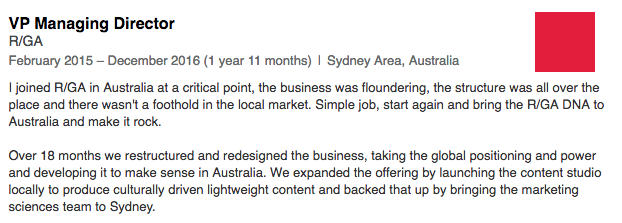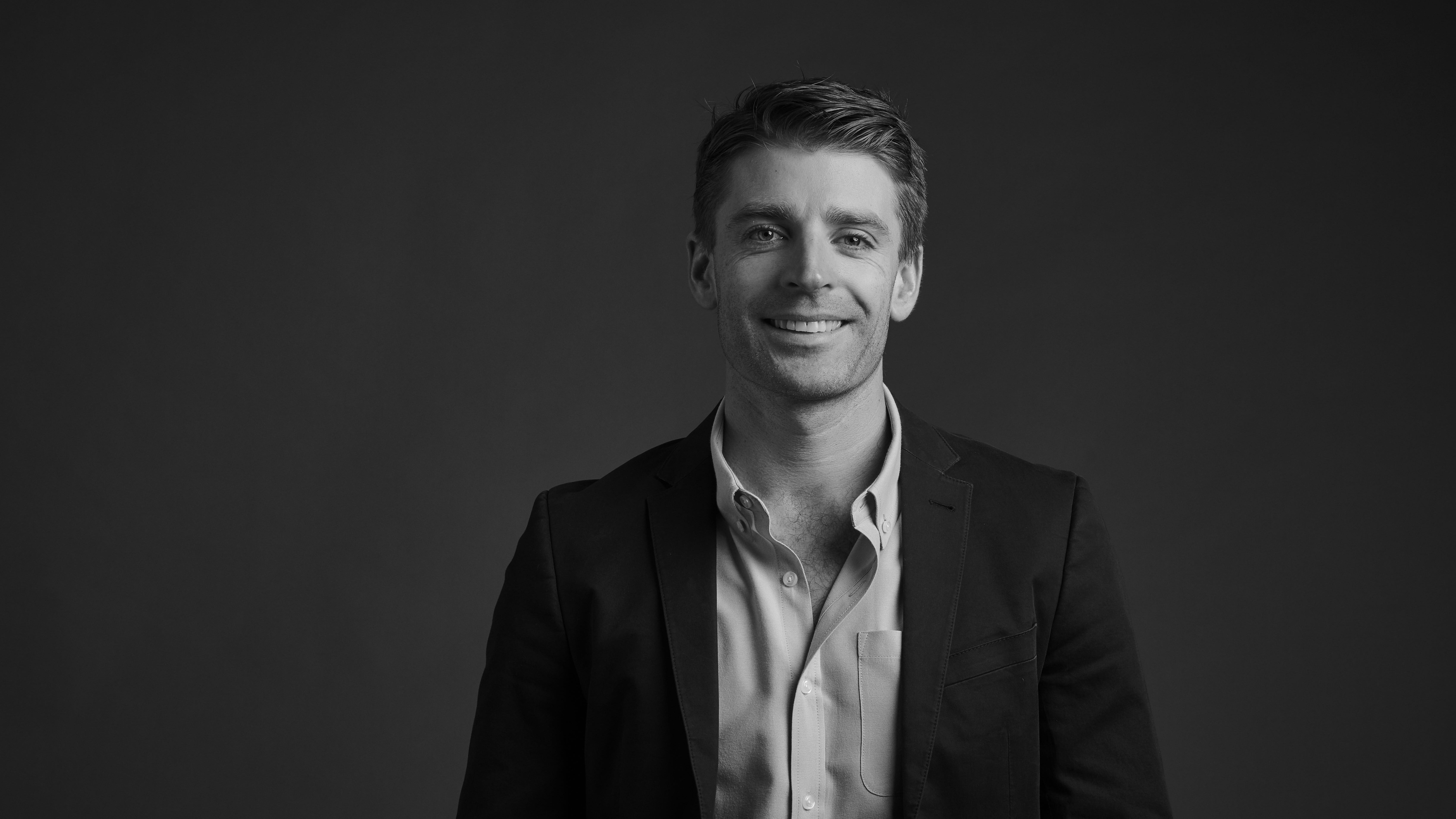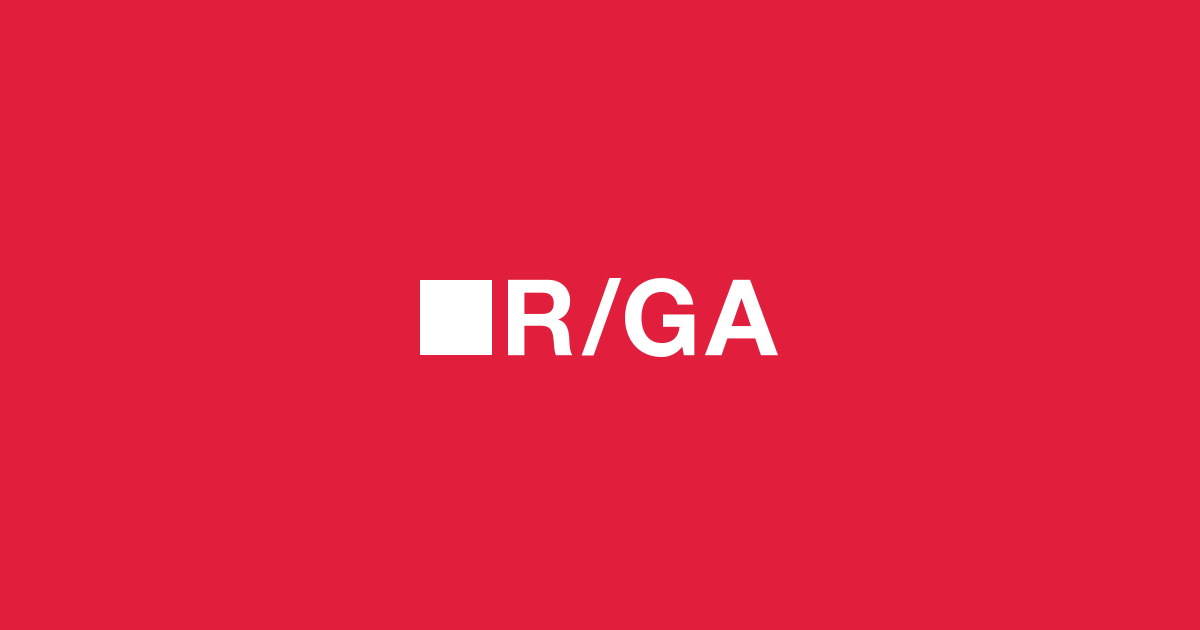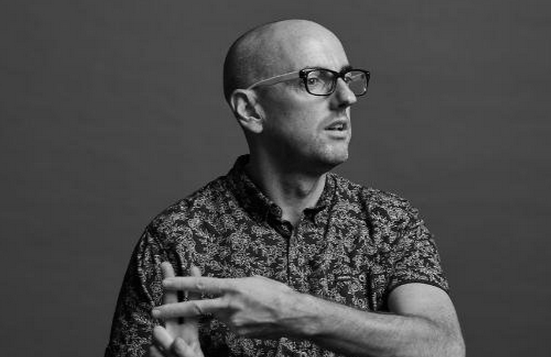‘Why I’m back’: R/GA’s Jon Holloway on opening slammed doors and what will be different this time around
Back in 2016, Jon Holloway exited adland and said “Nobody likes advertising, not even the people who make the ads”. But now, he’s back, at the very agency he left. Here, Mumbrella’s Vivienne Kelly asks why he slammed the door on the way out, and how he managed to get it open once more.
“Creative agencies had their chance. “They fucked it all up”. Advertising has been “killed by complacency”. Australian creative is “mediocre and lame”. These are all quotes from Jon Holloway as he said “goodbye” to adland, and went off into the world of start-ups.
Holloway had been head of strategy at The Works and managing director The Conscience Organisation. Then, in 2014, he joined R/GA. Two years later, he was gone, attracting headlines for taking shots at the “floundering” organisation.
But now, he’s jimmied the door back open, and will be executive strategy director at an agency he once ran.
Here, he reveals the real story of his exit, and his return – well his side of it, anyway.
VK: When you left R/GA back in 2016, you had some pretty damning statements about the organisation. You said its operation in Sydney was “floundering” and that the structure was all over the place. Some people would say that that’s you slamming the door on the way out – so how did you get that door back open?
JH: That was actually, when I updated my LinkedIn profile, what I said was, when I joined the business, it was in an interesting state. We’d been through – this was back in God, 2016, so I updated my LinkedIn when I left – it just said the business was in a bit of trouble and I came in and my job was to restructure that. And that was taken and turned into a leading statement, but it was never designed to be that way. It was always supposed to be a “This is what I’ve done, this is where I’ve come from. This is where I’m going on to”. So, when I left the business, it was a rocket ship. It was growing. We’d just won Toyota. We were opening a new office. We had 80-plus staff. And the only reason I left was to take an opportunity back in start-up land that I just couldn’t pass up on.
So I actually left the business on really good terms. And that’s the reason Dave [David Corns, SVP managing director of R/GA in San Francisco] asked me to come back. It’s not like I’ve gone begging for a job or anything.
It’s really hard to start a business in Australia. Really hard to start an agency because there’s so many of them. So the first two years had been problematic, and it kind of lost its way a little bit in terms of not really landing the ‘R/GA’ enough in Australia. It had just become another agency. And that’s kind of why they brought me in the first time around was: Come in. Shake it up. Reposition it. Take it on its journey. And try and bring some of that ‘R/GA’ back.
So that’s what I was trying to say. But what it actually was interpreted as was that I was pulling apart the business. And I wasn’t. Because when I actually left, it was probably one of the highest-performing offices in the network.
So that’s why I’m back, I suppose, is actually what we did last time was a lot of fun and it worked really well. So that one article is the one thing that probably took out of context anything I’ve said.
VK: So what’s made you want to more widely come back to advertising, and come back to this industry?
JH: So my career has been kind of part start-up, part working client-side to innovate, and part in creative industries. So going into start-up land and to create Zuper and build that over three years, and that was acquired last year, I’ve kind of been through all of the different elements of what is needed for brands to grow in today’s world.
And then I look what’s happened in the creative world and the advertising world, especially in Australia and what’s happened in the wider world with COVID, this completely new economy that we’re going into, there’s never been a better time for a business like R/GA to help brands and businesses in Australia and across the region. You have to do something different to grow to thrive in this new world.
So it wasn’t like I was looking to come back into the advertising world. It was more that that team that the R/GA group have put together in Australia across the two offices and then across the region was such a drawcard. So when Michael [Titshall, VP managing director of R/GA Australia] and Tuomas [Peltoniemi, EVP managing director, APAC] reached out to me, I was like “What’s going on?” So they told me the story and the fact that the business is going through a repositioning, and then these are the people like Ben Miles [executive creative director for business transformation in Asia Pacific] and Kieran Anthill [executive creative director in Australia], Ciaran Park [executive technical director], and all these other people who’ve come on in the national leadership, and I was like “I’ve got to go and get back involved in this”.
I think the interesting point is when I was in before, I was running the business. Now, probably my passion is not necessarily in operations. Anybody out there in the wide world who runs an agency knows how hard it is. My passion has always been about growing a business and shaking things up and doing things that are slightly unique and building ventures and businesses.
So I think this time coming back in as the strategic lead across all the different disciplines just allows me to not have to worry about the operational side of the business, because Michael’s got that, and he’s done an amazing job over the last year to handle the business and get it to a stable business. I have the freedom to be able to get involved in the repositioning of the business, to look at how the new structure works, to look at the way we work and to work with brands directly, and actually be on the tools, whereas last time I was partly on the tools, but mostly running a very fast-growing business.
VK: So what will your job title be? And what will you be charged with achieving?
JH: So R/GA in Australia has gone through a reinvention. It’s something that R/GA does a lot as the market changes. And what we have been doing over the last 12 months or so is to bring together this new creative proposition of agency and consultancy. So you get all the commercial rigour and commercial desire for consultancy, which is why people like Ben Miles and what we call ‘business transformation’ has been launched in Australia and is growing across the region, and then you have all of the fast-make-style culture of agencies brought together. So we are now operating like an agency/ consultancy business and that is allowing us to take that kind of deep rigour and design from consultancy and add that kind of creative layer of a creative business and do things that are truly quite different and operate in different ways.
And my role within that is titled as executive strategy director, or ESD, whatever you want to use. But my remit is across the experience design team, the marketing sciences team, the strategic design team, and then into some of the business transformation side here in Australia – which is kind of my number one focus – with opportunities to work with the regional teams across Singapore, Shanghai, into the Philippines and other areas that we are doing work.
So I’m kind of bringing that consultancy/ agency strategic group together, which is a wide range of skills across the two offices.
VK: How will you be different this time around? How much have you changed across the past four and a half years?
JH: I’ve changed a lot. I definitely won’t be updating my LinkedIn profile at any point with anything that might be taken up.
Knowing my role, I think, I’ve always, I’ve been MD at a couple of agencies and I always wanted to be like the controlling influence, but it only really worked, I kind of mostly got involved in the strategic and creative outputs rather than actually running a business. So I think knowing what I’m good at, and I think even as we built out Zuper, I started as kind of the man in control, and then realised over time that I had to bring in someone to run the business, and I took control of the product tech and marketing teams. It’s just kind of knowing where to place yourself.
I also think that I certainly have an opinion on most things. That has been quite direct in the past. I think there is an amazing opportunity now for the whole industry toi come together and lift up what brands and businesses are doing in Australia on a global scale. So how do we bring the industry forward in Australia to, yes go beyond ad-funded media approaches, because that alone is probably not the best route for companies and brands today. But to really kind of just show how great Australia is and how good the talent is here, because we’ve had so much talent drain. We’ve had some lean years from a creative point of view. And there’s been quite a lot of infighting between consultancies and agencies all going after the same type of work. So I’m definitely not the anti advertising contrarian I probably was. I still have deep feelings and opinions about how the advertising world and now the advertising consultancy world works, but I want to try and change that by doing it, not necessarily by shouting it at people. I will still shout it at people, but I think the reason I’m back at R/GA is because there aren’t many businesses that are better positioned to take that work on and to really try and push it forwards to help brands work in this world that is really undefinable by all of us.
VK: Speaking of the various challenges that the industry is facing – you’ve mentioned infighting, you’ve mentioned consultancies, there’s obviously the looming and ongoing threat of COVID and reduced marketing budgets and economic uncertainty – what do you think will be the biggest challenge of all of those coming into this role for you?
JH: I think the biggest challenge is the way that Australian people have changed. The huge societal change we’ve been through over not just the last year with bushfires to economics to COVID and all of those kind of things. Will humans come out the other side any different than on the way in? Of course they will. Will it be dramatic? Nobody really knows. But what we do know is the way people work, the way people travel, the way people connect with each other is changing. And that is going to change the playing field for brands and agencies to play on. So thinking about how the digital and innovation side of businesses evolves to meet that human need is something that we are going to have to get very much better at as an industry, and as a business. I don’t think we really quite know yet the impact that is going to have on the way that people interact with brands.
VK: And when you inevitably leave R/GA again, instead of ‘Exiting R/GA boss Holloway claims agency was ‘floundering’ and ‘all over the place’’, what do you want the headline to be for exit 2.0?
JH: I think when I went into the job last time, there was a kind of time limit in the agreement to kind of go ‘I have a specific purpose and a specific reason to be here which needs to happen very quickly to get the business back onto a playing field’. And we did that. We doubled the revenue. We doubled the amount of staff we had. We didn’t lose a pitch for a year. It was really great. I think my own stupidity caused the exit to be reported in a way that it shouldn’t have been done.
But to answer the question more directly, I think that I would like the business and everybody within it to be part of the evolution of what creativity is in Australia. I think we have a responsibility as an industry to redefine that. To be really serious about that. To not just kind of go ‘Everything digital’, or “Advertising is over’, or “TV advertising is dead’. The headlines you see all the time, I think you have to kind of go ‘Okay, let’s park all of that sort of stuff, and let’s think about the world as it is today, and then where we need to get to from an industry to remain relevant’. Because it’s quite obvious that we are becoming less relevant. We are seeing less and less marketers in big positions at big companies;. We’re seeing less and less budgets coming to creative businesses. We are seeing everyone trying to steal the cheese from each other. But if we can all play a role in redefining who we are and putting creativity back at the heart of businesses, then I would be happy with that.
I will also be staying quiet and hopefully not leaving for a much longer period of time. Two years is a good stint in advertising. I would like it to be a lot more.







Sounds like you’re lucky they took you back
You said real, damning words about not only the industry, but your former agency. Now you’re attempting to pretend that communication never occurred.
If you respected communication you wouldn’t pretend that every word didn’t matter.
You did a thing. Be accountable for it.
Droughts, fires, global pandemic and now more opinion pieces from Jon Holloway. The end is nigh.
R/GA has 6 months left in Aus. Period.
How many incredibly talented candidates did not get the chance to apply for this role so that Jon could get a second crack at it?
Candidates who haven’t insulted colleagues or defamed the industry at every opportunity. People who don’t think the best way to get their point across is by shouting?
As a bare minimum, someone who won’t name drop all the other (white, middle-class, middle-aged) men who’ve greased the wheels for them.
This is what has baffled from Friday till this new article today.
The sheer talent that’s out there, and this narcissist was given a second chance at a gig he literally threw away.
I am so saddened.
Product, price, place, promotion.
What’s this “marketing sciences” bullshit.
This bloke gets way too much airtime
Exactly.
Who cares.
Hhmmm,
Again……why are you back?
digi planner (wannabe creative) leaves digi agency. Slams digi agency. Joins start up. Start up dies. Goes back to digi agency. everyone laughs